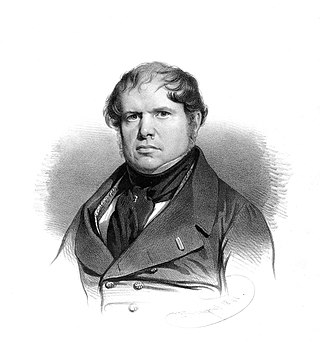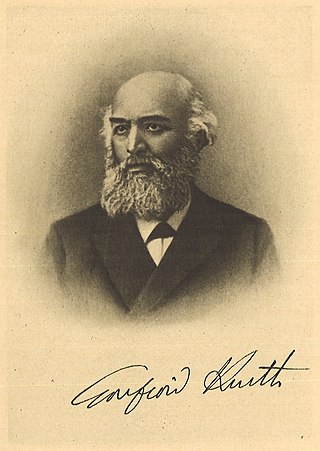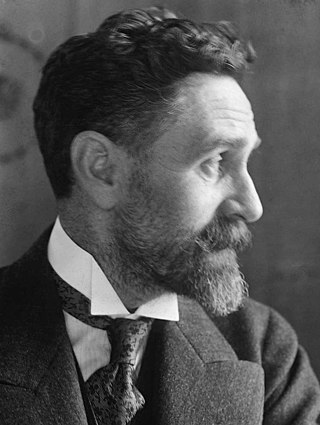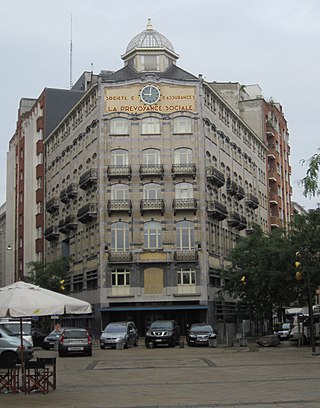
Henri Pirenne was a Belgian historian. A medievalist of Walloon descent, he wrote a multivolume history of Belgium in French and became a prominent public intellectual. Pirenne made a lasting contribution to the study of cities that was a controversial interpretation of the end of Roman civilization and the rebirth of medieval urban culture. He also became prominent in the nonviolent resistance to the Germans who occupied Belgium in World War I.

François-Joseph Fétis was a Belgian musicologist, composer, teacher, and one of the most influential music critics of the 19th century. His enormous compilation of biographical data in the Biographie universelle des musiciens remains an important source of information today.

Godefroid Kurth (1847–1916) was a celebrated Belgian historian and pioneering Christian democrat. He is known for his histories of the city of Liège in the Middle Ages and of Belgium, his Catholic account of the formation of modern Europe in Les Origines de la civilisation moderne, and his defence of the medieval guild system.
Jean Stengers was a Belgian historian.

The Casement Report was a 1904 document written by Roger Casement (1864–1916)—a diplomat and Irish independence fighter—detailing abuses in the Congo Free State which was under the private ownership of King Leopold II of Belgium. This report was instrumental in Leopold finally relinquishing his private holdings in Africa. Leopold had held ownership of the Congolese state since 1885, granted to him by the Berlin Conference, in which he exploited its natural resources for his own private wealth.

The Centre for Historical Research and Documentation on War and Contemporary Society, known by its combined French—Dutch acronym Cegesoma or CegeSoma, is a historical research institute and archive based in Anderlecht, Brussels in Belgium. It focusses on World War II and the contemporary history of Belgium. Since 2016 it has formed part of the Belgian State Archives. Its director is Nico Wouters.
This is a survey of the postage stamps and postal history of the Democratic Republic of the Congo, formerly Zaire and the Belgian Congo.

The Belgian National Movement was a major group in the resistance in German-occupied Belgium during World War II with politically centre-right leanings.
Zaïre. Revue Congolaise—Congoleesch Tijdschrift was a Belgian academic journal devoted to African studies. In particular, it focused on the region of the Belgian colonial empire.
Revue Belge de Philologie et d’Histoire – Belgisch Tijdschrift voor Filologie en Geschiedenis, abbreviated RBPH/BTFG or simply RBPH, is a scholarly journal in the fields of philology and history, published in Belgium since 1922. Since 1953 it has included a compendious bibliography of current work on the history of Belgium, and it is the leading journal in this field.
Paul Hamelius or Hamélius (1868–1922) was a Belgian philologist who produced the two-volume Early English Text Society edition of the Travels of Sir John Mandeville.
Guerres mondiales et conflits contemporains is a quarterly peer-reviewed academic journal covering the history of modern conflicts, until 1987 with a particular focus on World War II. It is published by the Presses Universitaires de France.
Charles Terlinden (1878—1972) was a Belgian historian, professor at the Catholic University of Louvain, and papal chamberlain.
Events in the year 1845 in Belgium.
Events in the year 1899 in Belgium.
Journal de Bruxelles was a Belgian newspaper, printed 1841-1926. It was one of the leading dailies in late 19th and early 20th-century Brussels, and was aligned with the Catholic interest in public affairs.
Robert Demoulin (1911–2008) was a professor of contemporary Belgian history at the University of Liège.
Florence Marguerite Edler de Roover (1900–1987) was an American medievalist. In 1945 she published groundbreaking work on the history and terminology of marine insurance, dating the first insurance contracts to Italy in the decades around 1300.
Marthe Crick-Kuntziger (1891–1963) was a Belgian museum curator at the Royal Museums of Art and History, where she specialized in tapestries and was the author of a hundred publications in her field. She was awarded the five-yearly Edmond Marchal Prize of the Royal Academy of Science, Letters and Fine Arts of Belgium for 1933–1937.
Suzanne Tassier-Charlier was a Belgian historian, political activist, feminist, and Professeur ordinaire. She was the first Belgian woman to be awarded a higher education degree in her country.





